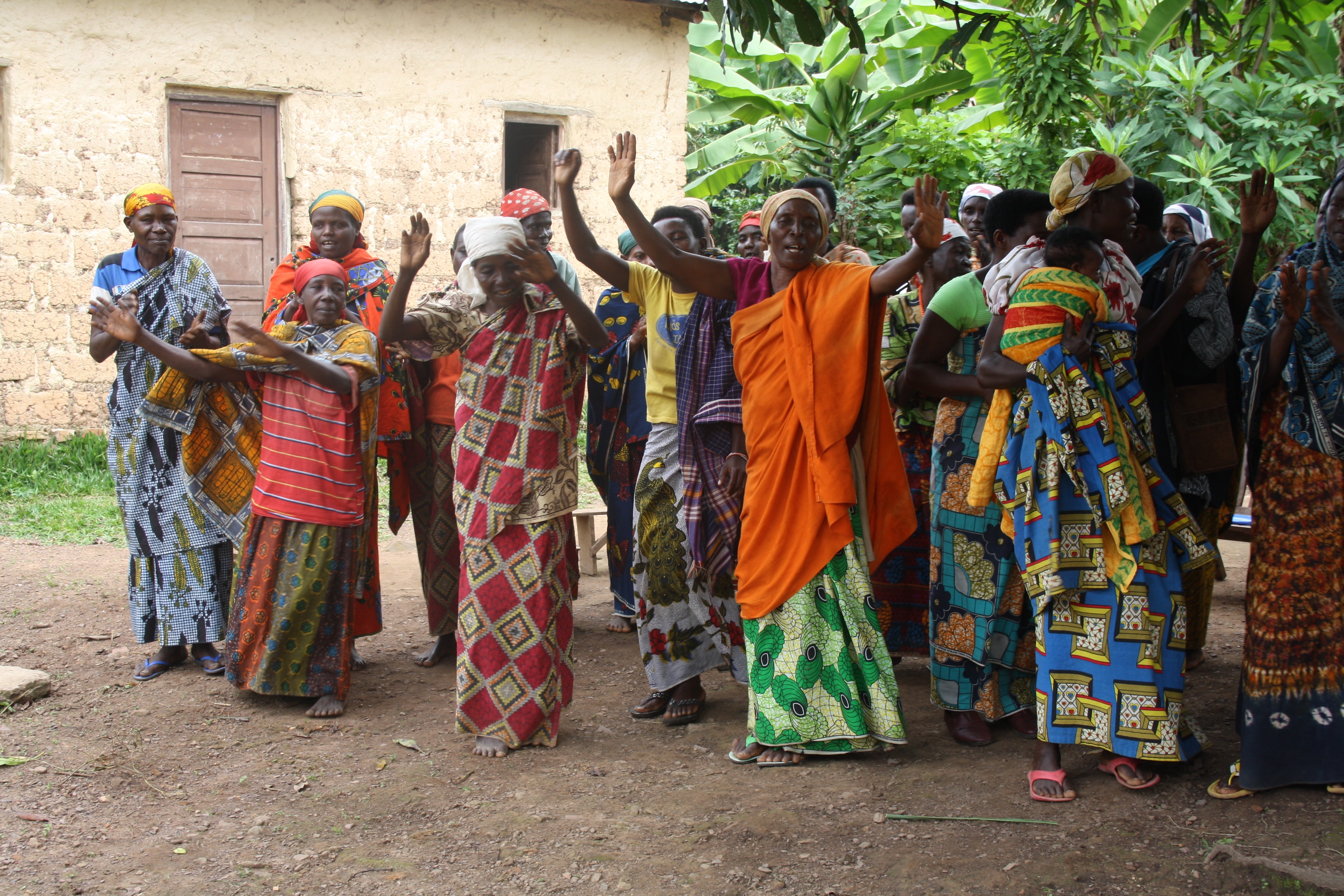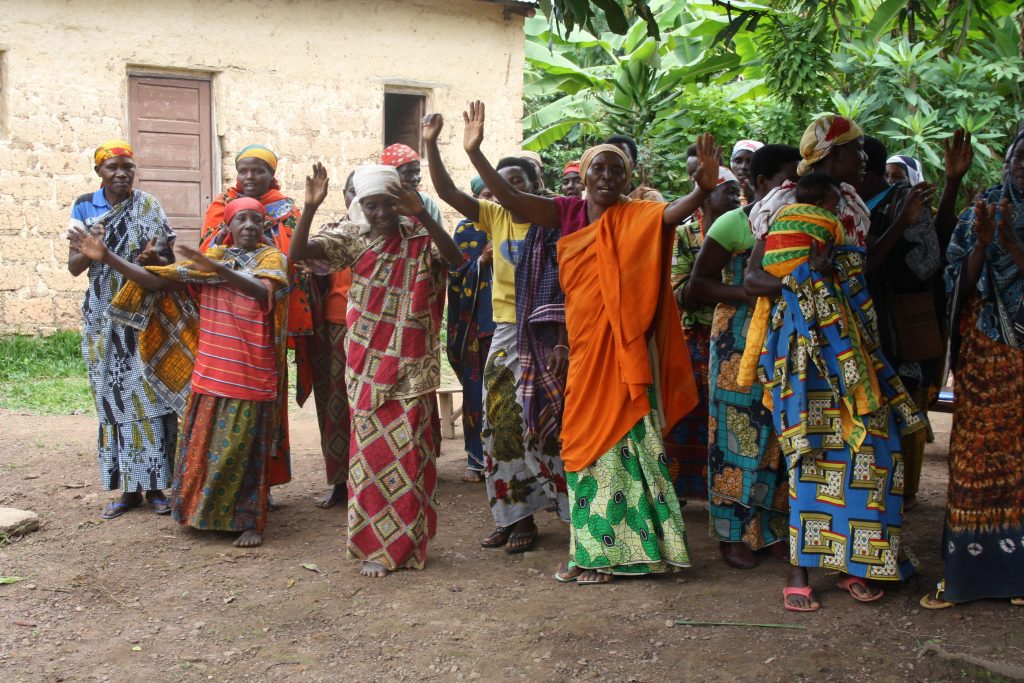
During Lent, most CIDSE member organisations run campaigns on a particular theme, showcasing the work of partners in the Global south and their own work at the national and international level. The objective of these campaigns is to raise awareness and political and financial support for their work and that of their partners.
This year, the campaign theme of CIDSE’s Belgian French-speaking member organisation Entraide et Fraternité is the role that women from the Great Lakes Region play in transforming agriculture to respond to the various crises they face (socio-economic, political, ecological, and even humanitarian). In this blog, Hélène Capocci, Advocacy and Research officer at Entraide et Fraternité, reflects on what she learned about the gender equality approach from partners from the rural areas of Burundi and South Kivu (DRC) in Africa who are central to their Lenten campaign in 2018.
“It is essential to place a discussion on gender equality in the African context, from the specific socio-cultural perspective.” This statement of Martin Nivyabandi, Burundi’s Minister for Gender typifies views expressed in the discussions on gender that I encounter during field visits. It highlights how important it is to consider the complex socio-cultural dynamics in the relationship between the sexes to develop an effective approach to gender equality.
For some partners, working for gender equality is not restricted to working with women. Youth, older soldiers and children are often addressed. This approach includes all those who are discriminated and set aside by the patriarchal system. “We work with a holistic approach of a family together, and not an isolated vision of women, men and children. We address social injustice for everyone! »
The work of partners of Entraide et Fraternité is mainly concentrated in the family agriculture sector. While there is no doubt that women play an essential role in peasant agriculture, this role is largely invisible and undervalued. Conscious that food sovereignty can effectively only be achieved if women are respected and included in the decision-making process and income management, our partner associations in Burundi and South Kivu (DRC) work to ensure this. Even though they do not define themselves “feminists,” a word they often associate with a Western notion of confrontation and revenge, they share some feminist ideas.
In the culture of the Great Lakes region, masculinity is associated with asserting authority and power, a typical characteristic is financial independence. In an agrarian context, a man is respected when he owns the resources with which he can maintain a family. However, the current economic context and political instability make acquiring and owning property very difficult (population displacement, looting of crops and livestock, or occupation of land by militia).
More than 70% of cases before tribunals or mediation in Africa relate to land disputes. Peasants are vulnerable to dispossession caused by various factors: fragmentation of land-holdings, demographic pressure, expropriation for real estate projects or mining, land grabbing by local elites or foreign investors for agribusiness or logging.
For many reasons men are often not able to live up to the traditional criteria of masculinity. In the current situation, women have increasingly taken up more responsibilities (agricultural work, economic activities, etc). This brings about a sense of loss of personal value among men and is one of the reasons why many local organisations choose an inclusive gender approach. Men have to be part of the change for gender equality and they must be able to identify themselves in a positive way vis-a-vis women. This reduces the risk of provoking frustration among men and reinforcing a feeling of rejection. I have realised that this is an indispensable approach especially in a situation of great social tension and violence against women. Indeed, it is very important to consider the post-conflict society, the political instability and the climate of insecurity when working on gender issues in the Great Lakes region. In a context where a whole generation of adults in the Great Lakes region carries the wounds of a period of prolonged conflict, specific education towards young people is essential to counter the trivialization of violence and ending a climate of impunity.
One of our partners in Burundi explained: “We do not want any more conflict. We are not in favour of a confrontative vision, which would not achieve any good results but only increase conflicts in the households. We prefer promoting harmony, mutual respect, complementarity which really contributes to changing the relationship between men and women”.
Furthermore, the work of our partners also encompasses female adult education (to increase their autonomy and management of peasant organisations), gender equality training (at the level of the structures within peasant organisations and in the household), and strengthening women’s civic participation in administrative bodies. These measures help to increase the representation and participation of women in decision-making.
I found this approach encouraging: a change process is visible on site in rural communities. A growing number of girls going to school and women in decision making positions, men who help with the harvest, do domestic chores and are more present at home. Boys contributing to tasks traditionally associated with their mothers or sisters. Women, determined to take their destiny into their own hands, are conscious of the need to educate their children differently, to ensure gender equality in the long term.
Click here for more information about the topic and Entraide et Fraternite’s activities.

